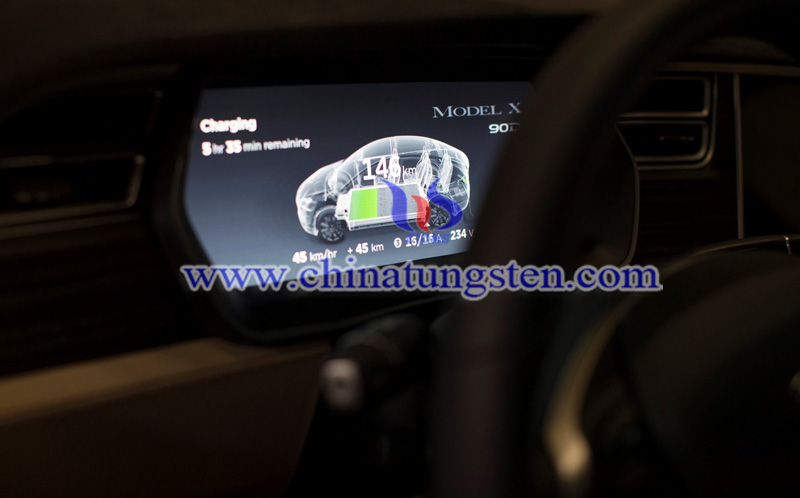LG Supplies to Tesla, Accelerating Layout of High-End Lithium Batteries
- Details
- Category: Tungsten's News
- Published on Tuesday, 27 August 2019 09:09
According to the report, U.S. electric vehicle maker Tesla Inc is in advanced talks with South Korea’s LG Chem Ltd to source batteries for vehicles to be made in its Shanghai plant. As a result, it will help accelerate the layout of the high-end lithium batteries industry.
Due to the uncertainty that has come with the trade war between China and the Trump administration, Tesla decided to accelerate its plan to establish manufacturing capacity in China to avoid increasing tariff on US vehicles. To accelerate those plans, the company decided to hold off on battery production and instead, they plan to work with suppliers.
After buying batteries from Panasonic as its exclusive supplier Tesla has been casting about for new suppliers for the factory it is building in Shanghai to produce versions of the Model 3 and the upcoming Model Y for Asian buyers. Recently, the company has reached an agreement with LG Chem, LG plans to provide with 21700 cylindrical batteries. Besides, Tesla may also purchase power batteries from other suppliers. This will help to promote the development of new mineral resources such as rare earth ore, molybdenum ore, and tungsten ore. This is mainly because some of their oxides are excellent as additives for electrode materials, effectively increasing the electrochemical performance of the batteries.

Since the establishment of the new plant in Shanghai, the industry has been curious about the choice of its automotive battery supplier. As we all know, Tesla currently purchases batteries from Panasonic, Japan, but it has limited its development due to the insufficient capacity of batteries. Therefore, the Shanghai factory plans to find several battery suppliers, LG is one of their choices.
From the perspective of demand, automobile manufacturers are increasingly demanding high-end lithium batteries capacity. At present, many automobile producers are moving towards the direction of mid- to high-end electric vehicles. The longer cruising range, shorter charging time and longer service life have become the basic requirements of electric vehicles to PK the fuel vehicles. To achieve these requirements, high-end power batteries are needed, which brings great challenges to lithium-ion enterprises.
From the perspective of supply-side, China's power batteries industry is entering the deep-water area where needs to be reshuffled. The data shows that the total installed capacity of power batteries in the first half of 2019 was about 30.01GWh. Among them, the top ten enterprises accounted for 88%, and the CATL and BYD both won the ratio of over 70%. The main reason for being eliminated is that lithium-ion enterprises lack vehicle-level product development and manufacturing systems and verification, as well as frequent safety accidents in battery products.
From the event of Tesla agrees to buy batteries from LG for models produced in the new factory in China. We could tell that, with the changes of the times, high-end lithium batteries will be favored by more consumers in the future.
- Rare Earth Manufacturer & Supplier, Chinatungsten Online: www.chinatungsten.com
- Tungsten News & Prices of China Tungsten Industry Association: www.ctia.com.cn
- Molybdenum News & Price: news.molybdenum.com.cn
- Tel.: 86 592 5129696; Fax: 86 592 5129797; Email: sales@chinatungsten.com



 sales@chinatungsten.com
sales@chinatungsten.com